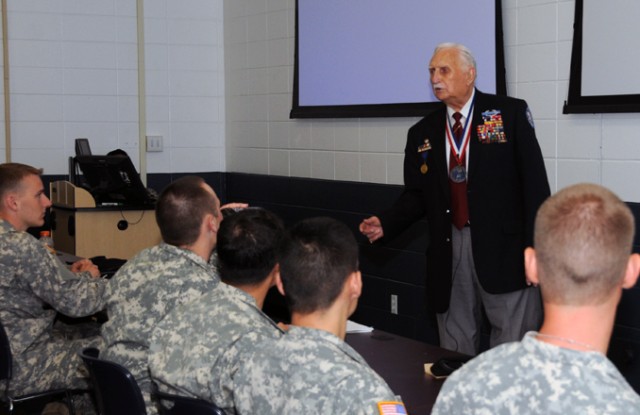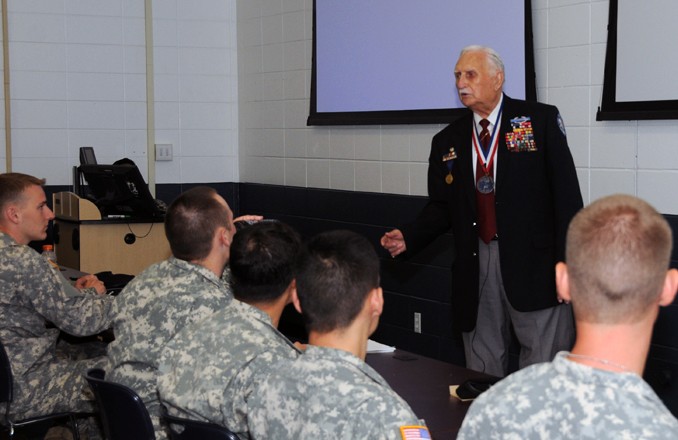FORT RUCKER, Ala. --- A survivor of the Bataan Death March spoke with Aviation Basic Officer Leader Course class 11-013 students May 11 at the U.S. Aviation Center of Excellence.
Col. Glenn D. Frazier, a former WWII prisoner of war and Bataan Death March survivor, offered the students personal insight into life as a POW and his experiences.
Frazier grew up in Lowndes Count, Ala., in the 1930s and joined the Army at 16. He was serving in the Philippines when the Japanese attacked. He fought in the Battle of Bataan and was captured April 9, 1942. He was marched north and spent 3 1/2 years in Japanese POW camps performing slave labor.
"For them to be able to survive is the main thing," he said. "If I can survive what the Japanese put before me and put me through, they can surely survive."
The BOLC students start Survival Escape Resistance Evasion, or SERE training soon, and 2nd Lt. Jesse Pope said Frazier's visit was meaningful.
"A lot of people have anxiety about going into SERE, and it's good to hear from a real-life POW, he said. "While our training will be nothing close to what he went through, it makes me think that there have been people who wore this uniform before me who faced up to worse situations than what I'm going through now. So, I can do this, too."
Frasier also told how returning home and to a "normal life" is a journey as well.
"I came home with a lot of hatred in my heart," he said. "Terri came home one night and said she was going to buy a Toyota. I said, 'Well where are you going to park it'' Hatred is the worst thing you can have."
Frazier said he had nightmares for 30 years after returning home. It took many years of counseling with his preacher to get rid of the hate he had for the enemy. Once he got rid of the hatred, the nightmares went away as well.
BOLC students had a chance to ask Frasier questions about his experiences.
"It's important for people of my generation and future leaders of the Army to hear these experiences before that firsthand information is gone," Pope said. "Having a man stand in front of you and telling about his personal experiences is far more powerful than anything you could get out of a book or film."
After returning home, Frazier served in the Army Reserve for six years. He has written a book called "Hells Guest" about his experiences and volunteers at USS Alabama Battleship Memorial Park in Mobile.


Social Sharing